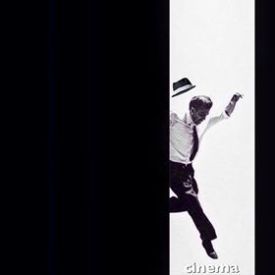INSPIRING FUTURE FILMMAKERS

THE TEACHER IS THE EDUCATION
The teacher is responsible for the content of the course and delivering it in an engaging manner. They are the student’s partner in learning. Film school can be a vital and memorable experience when the instructor has a depth of knowledge, a command of the material, and the skills to connect with a class of creative individuals: these are fundamental requirements.
The teacher sets the standard of professionalism for their discipline, their course and their school. Fulfilling the industry expectations of a creative position in film production requires a broad knowledge of filmmaking skills and tools, along with other important qualities: rapport, empathy, confidence, stamina, leadership, and a sense of humour (to name a few.) The student benefits when they see these qualities demonstrated by the teacher and can apply them to their own creative process.
The teacher shapes the tone, pace and dialogue of the learning environment. They create the classroom experience for the student. In The Courage to Teach, Parker Palmer writes, ‘To educate is to guide students on an inner journey toward more truthful ways of seeing and being in the world.’ This is powerfully relevant for the 21st century film student, and a roadmap to great treasures for filmmakers and storytellers.
Like an actor, the teacher needs to be ‘in the moment.’ Workshops and screenings are a forum for the teacher to provide perspective and feedback to the student’s work — and this helps the student learn to filter criticism and develop their own critical point of view. A robust critique from a respected source, and the opportunity to then take it, test it, and potentially improve the work is what filmmaking, and film education, is all about: listening, communicating, and connecting ideas.
FILM IS ART
Film is a complex medium and needs to be broken down into bits and pieces. A good film seduces the audience. There can be many layers to its construction. So many, in fact, that a viewer is not even aware of how the tools of cinema are being used: lighting and lenses, music and silence, framing and editing. When everything comes together in an amazing scene, the filmmaker has achieved what the student must constantly search for: how to make the audience feel something.
The teacher provides evaluation. In that sense, they are the audience — but an audience of one requires constant vigilance. Grading creative work is an exercise in subjectivity, and it needs to be self-governed at the highest level. It also needs to be fair, consistent and transparent. When grading is thorough, straightforward and well-defined, it has greater substance and value to the student.

#MENTOR
The teacher must be a mentor. A good mentor holds up a mirror for the student, and helps them to trust their instincts and value their imagination. This is where powerful stories begin. It’s not about what’s easy or hard, or right or wrong — it’s about what is possible. To succeed as a filmmaker, you need to go deep: the deeper the better. This is fertile ground.
Mentoring differs from the classroom or workshop setting. The mentor/mentee relationship must be built on a foundation of mutual trust and respect. When the student values the mentor, the relationship thrives. A mentor listens, suggests, and motivates: they generate energy.
They also know that procrastination and daydreaming are part of the creative process. Yes, progress is important — but inspiration and genius can strike in a flash at the most unexpected times and suddenly turn into a marathon of all-nighters.

JUST. KEEP. GOING.
Creativity is a personal journey, and conformity has never been a badge for the pioneers of artistic expression. Audiences need new ideas, new stories and new ways of being told a story. They want unique characters in original situations. They want to see relatable emotions rendered with superior artistry: this is what drives the entertainment industry.
When the film student taps the wisdom of a teacher who has taken the risks and chances that they plan on taking, it creates the synergy to push the envelope, think outside the box, and break new ground. Mentoring in this territory requires an innate understanding of the potential of the imaginative world.

NO FEAR
Student filmmaking should be the front line for new voices. The innovators of tomorrow want to say, “Hey, look what I made!” today, and have it shine with the promise of what they can and will do in the future.
There’s not always a right way to do it or a correct answer in the creative fields; it is the searching and the willingness to explore and experiment that matters.
